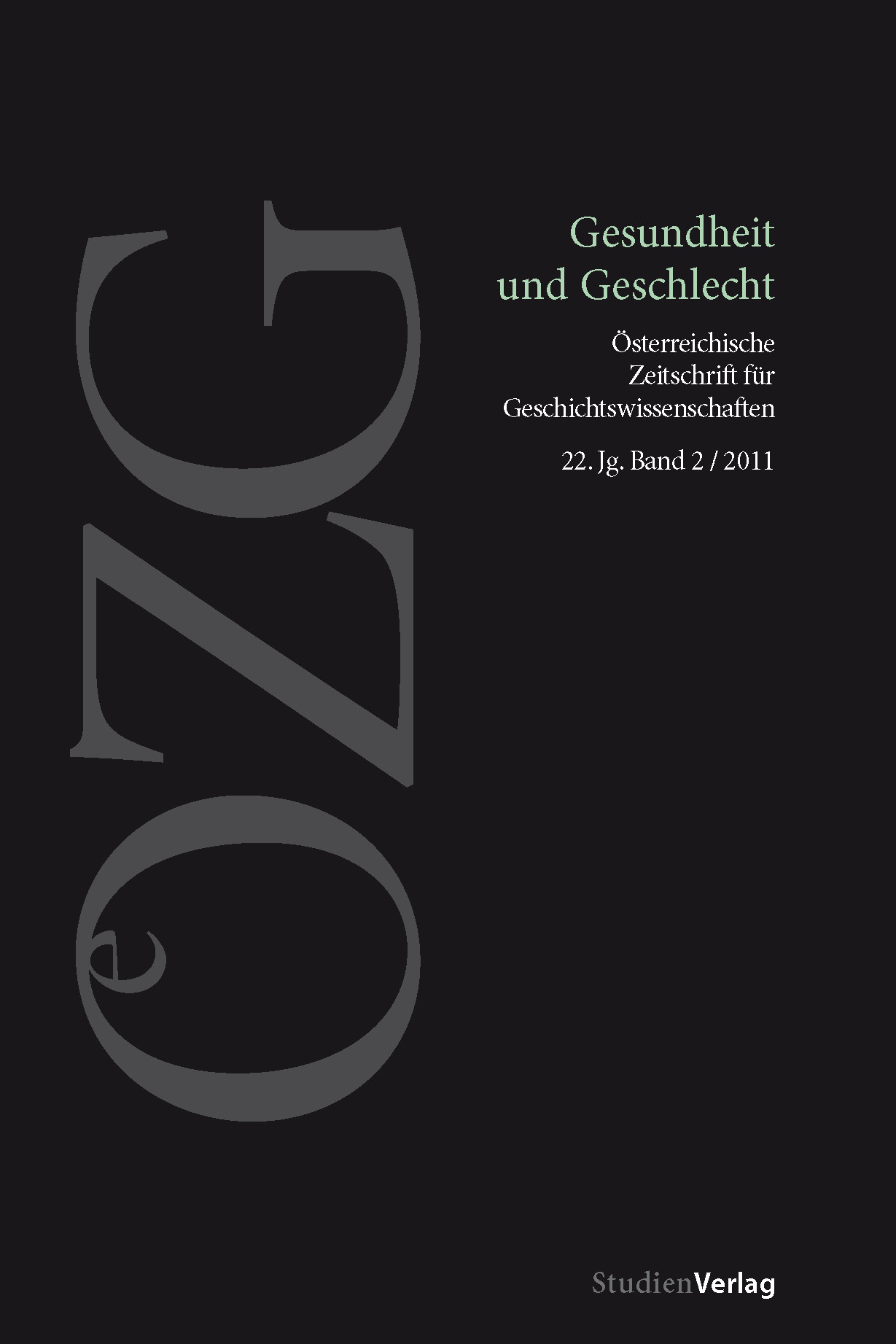Machte Arbeit Männer krank?
Erwerbsarbeit, Männlichkeit und Gesundheit im 20. Jahrhundert
DOI:
https://doi.org/10.25365/oezg-2011-22-2-7Schlagworte:
gender history, labor history, popular autobiographies, lifestyle approach, workaholicsAbstract
Based on a sample of 155 unpublished popular autobiographies from the Federal Republic Germany, Austria and Switzerland, the article addresses the interconnection of employment, masculinity, and health in the German-speaking world in the 20th century. The central question is whether or not it was, above all, work that made men sick. Methodologically, the study is designed as a discourse analysis of healthy lifestyles in everyday life focusing on both a subject and an action oriented perspective. Comparing the written autobiographies of men an women, it is argued that employment served as an universal autobiographical orientation in 20th century life writing, while significant structural gender inequalities persisted on all labor markets. Looking closer at three for the time typical health risks on the job, that is work accidents, occupational diseases, and work related diseases, the author elaborates on the resultant inequities at the potential expense of male employee’s health. The article finally concludes that work-centered life-style turned out as the main occupational health risk for men in the 20th century. The workaholic lifestyle lost much of it’s practical shaping power as the younger men, born in 1920s and 1930s, were increasingly reflecting the inherent conflict between work and health or family orientation.


